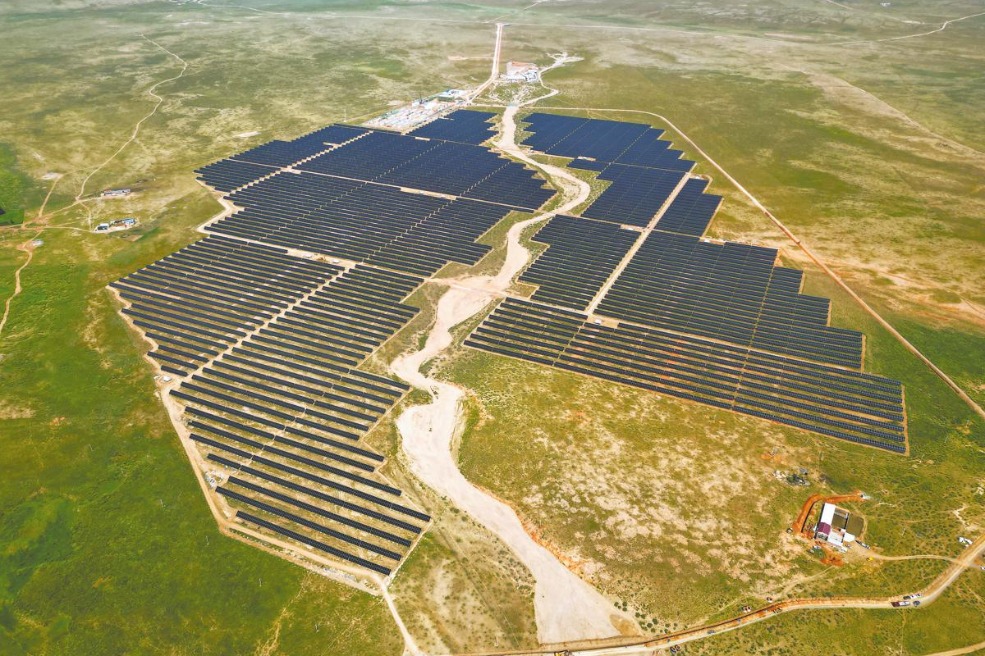Charity cleanup leads tycoons to donate more



While public confidence in giving is returning, better rules are needed to encourage the trend
China's richest person is also the biggest donor to charity, according to a report by China-based luxury magazine publisher Hurun. It reflects the growing interest of wealthy Chinese in charitable causes.
Jack Ma, founder of e-commerce giant Alibaba, became the country's richest person this year, according to Forbes. With a total wealth of $25 billion (by Hurun estimates), Ma has donated $2.4 billion to the charity foundation he and his colleague Cai Chongxin have set up.
It may be a coincidence that Ma has become China's richest person and top philanthropist at the same time, but there is little doubt that the country's richest people are becoming more altruistic. According to this year's Hurun philanthropy list, the average donation by the top 100 donors was 200 million yuan ($32.5 million), or 3.6 times that of last year, an almost unprecedented growth rate.
Rich Chinese are known to maintain a low profile and often shun charitable activities - so much so that in 2010, the top two American magnates-turned-philanthropists, Microsoft co-founder Bill Gates and Berkshire Hathaway head Warren Buffett, traveled to China to persuade local tycoons to donate more to charity.
The explosive growth in donation this year is important especially because it signals growing public confidence in charity after the scandals involving some domestic charity foundations in recent years. In 2011, for example, Guo Meimei, a young woman claiming to have connections with the Red Cross Society of China, the major government-controlled charity organization, posted clips online showing off her luxurious lifestyle, which aroused public suspicion that she was squandering the money donated to the Red Cross. Although the Red Cross later denied the charges and Guo herself confessed after being arrested for soccer gambling that her money had nothing to do with the Red Cross, many people tended to sigh away from charity organizations.
As a sign of such dented public confidence, many rich people, including Jack Ma, have started their own charity funds.
The rich may have many reasons for maintaining a low profile. By being open about their donations, they could, for instance, receive requests from both government agencies and ordinary people demanding more donations or face stricter tax scrutiny.
Therefore, policymakers should find ways to encourage billionaires as well as those not so rich to donate to charity if they want the trend of rising donations to continue. Although it could take years for the tradition of keeping one's wealth away from the public spotlight to give way to the new trend, there are many things policymakers can do to encourage donation. To start with, they could remove the "gray areas" from, and strictly enforce, the regulations that state donations are exempt from taxation.
Moreover, there are no applicable rules governing donations using real estate and equities. And the lack of unified deduction standards for different types of charity organizations leads to de facto discrimination against private charity foundations.
This necessitates that legislators clarify and/or amend the laws and regulations on charity to facilitate donation and have uniform rules for all types of charity foundations. At the same time, the operation of charity organizations, especially information on how they use the donations, must be open to public supervision to restore public confidence in charities.
Such institutional build-up is crucial for the healthy growth of charity organizations in China. According to the World Giving Index, compiled by the Charities Aid Foundation, China figures somewhere toward the bottom of the list for people donating to charity to help others. And a report released by China Charity Information Center in September shows that despite improvements, the charity transparency index remains low, at 44.1 (on a scale up to 100), and only 28 percent of those surveyed were satisfied with information disclosures by charity organizations.
But this should not be seen as a sign of Chinese people's reluctance to donate for charity, because there are also people like Jack Ma, who has donated about one-tenth of his total wealth, and Cao Dewang, another Chinese billionaire who has given away as much as 5 billion yuan to charity since 1983. The need obviously is to promote charity, for which we have to build a more favorable system that encourages donations.
The author is a senior writer with China Daily. Contact the writer at xinzhiming@chinadaily.com.cn
(China Daily Africa Weekly 11/14/2014 page13)
Today's Top News
- Ukraine says latest peace talks with US, Europe 'productive'
- Economic stability a pillar of China's national security
- Xi taps China's deep wisdom for global good
- New rules aim for platforms' healthy growth
- Chinese web literature grows overseas
- Postgrad exam trend points to thoughtful approach






























